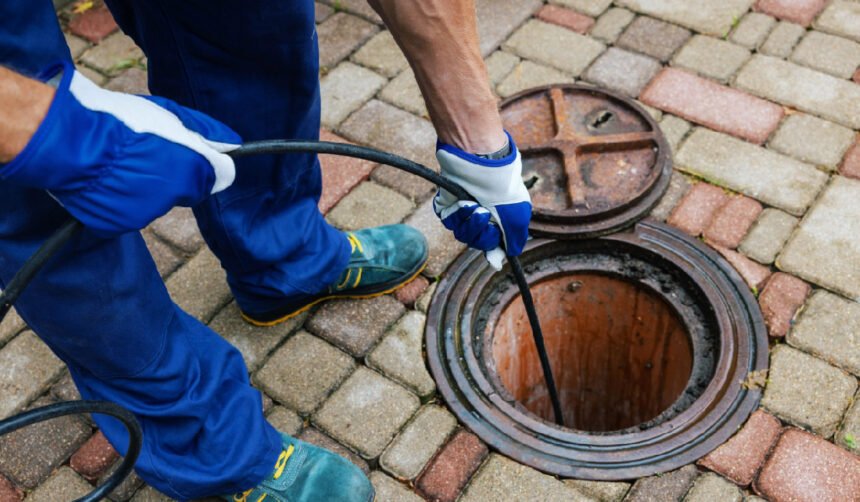Drains are the unsung heroes of your plumbing system. They quietly perform the essential task of directing wastewater away from your home, allowing daily routines to run smoothly. However, when something goes wrong—whether it’s a slow-draining sink, gurgling toilet, or foul odor from the shower drain—suddenly, the importance of clean, efficient drainage becomes crystal clear. That’s where Drain Cleaning becomes not just a service, but a crucial part of home maintenance.
Blocked or poorly maintained drains don’t just create inconvenience; they can lead to costly repairs, water damage, and even health hazards. This article will explore the importance of drain cleaning, common causes of clogs, warning signs, cleaning methods, preventive measures, and how professional services can save you time and trouble.
Understanding the Role of Drains in Your Plumbing System
Before diving into cleaning techniques and strategies, it’s essential to understand how your home’s drainage system works. Every sink, shower, toilet, and appliance that uses water is connected to a complex network of pipes designed to carry wastewater away from your property.
When this system works well, it efficiently removes waste with minimal attention. But like any mechanical system, it requires upkeep. Over time, debris, grease, hair, soap scum, and even foreign objects can build up, creating blockages that impede water flow.
Neglecting this buildup for too long can cause extensive damage—not just to the pipes, but also to the foundation and internal structure of your home.
Common Causes of Drain Blockages
Drain blockages rarely happen overnight. Instead, they develop gradually, with small obstructions eventually forming a significant clog. Knowing the typical culprits can help you avoid them in the first place.
1. Hair
Hair buildup is one of the most common causes of bathroom drain clogs. It binds with soap and other debris to create dense, slow-draining masses.
2. Grease and Fat
When grease or fat is poured down the kitchen sink, it cools and solidifies inside the pipes. Over time, it creates stubborn clogs that are difficult to remove without specialized equipment.
3. Food Waste
Even with a garbage disposal, certain food particles like coffee grounds, eggshells, and fibrous vegetables can accumulate and block your pipes.
4. Soap Scum
Some soaps contain fats that combine with minerals in water to form soap scum, which sticks to pipe walls and narrows the passage over time.
5. Foreign Objects
Items like cotton swabs, dental floss, children’s toys, or sanitary products accidentally flushed down the toilet can obstruct water flow and cause significant backups.
6. Tree Roots
In outdoor plumbing systems, tree roots often grow into pipes through small cracks, seeking water. They can cause serious structural damage and require professional removal.
Signs That You Need Drain Cleaning
Clogs often give warning signs before turning into a full-blown emergency. Identifying these early can prevent bigger problems later.
– Slow Draining Water
If sinks, tubs, or showers take longer than usual to drain, it’s a strong indicator of buildup within the pipes.
– Unpleasant Odors
Foul smells emanating from the drain are usually caused by trapped food or organic waste decomposing in the pipes.
– Gurgling Sounds
Gurgling noises suggest air is trapped in the drain due to a partial blockage disrupting the normal water flow.
– Frequent Clogs
If you’re constantly plunging or using store-bought solutions, your drains likely need more comprehensive attention.
– Water Backups
Water backing up into sinks or tubs is a serious issue that demands immediate attention, as it may indicate a mainline blockage.
Drain Cleaning Methods: DIY and Professional Options
There are several ways to clean and maintain your drains, depending on the severity of the problem. While some techniques can be done at home, others are best left to the professionals.
1. Boiling Water
For mild clogs caused by grease or soap, pouring boiling water down the drain can sometimes dissolve the buildup.
2. Baking Soda and Vinegar
A classic natural remedy, this combination creates a foaming action that can help break down minor blockages and deodorize your drain.
3. Plunger
A standard plunger creates suction to dislodge clogs. It’s effective for sinks, tubs, and toilets with simple obstructions.
4. Drain Snakes or Augers
These tools can reach deeper into the pipe to manually break up or remove clogs. They are available in manual or motorized versions.
5. Enzyme Cleaners
These biological solutions use enzymes to digest organic materials like hair or food particles. They’re safer for pipes than harsh chemicals and are suitable for regular maintenance.
6. Hydro Jetting
This professional technique uses high-pressure water to blast through blockages and completely clean pipe walls. It’s highly effective for stubborn or recurring issues.
7. Video Inspection
Many professional plumbers now use small, waterproof cameras to inspect pipes from the inside. This identifies the exact location and nature of the blockage, ensuring a precise and efficient cleaning.
Why Regular Drain Maintenance Matters
Routine Drain Cleaning isn’t just a reactive measure—it’s a preventive one. Regular maintenance keeps your plumbing system running efficiently and helps avoid unpleasant surprises.
Benefits of Consistent Drain Maintenance:
- Reduces the Risk of Major Clogs: Regular cleaning prevents small buildups from becoming full blockages.
- Improves Drainage Speed: Water flows faster and more smoothly through clean pipes.
- Prevents Foul Odors: Cleaning eliminates decaying organic matter that causes bad smells.
- Extends Plumbing Lifespan: Removing corrosive materials helps maintain pipe integrity.
- Saves Money: Preventive maintenance is far less costly than emergency repairs or water damage restoration.
By making Drain Cleaning a routine part of your home maintenance, you extend the life of your plumbing and reduce the risk of costly surprises.
When to Call a Professional
While some clogs can be handled with DIY methods, others require the expertise and equipment of a professional plumber. Call in the pros if:
- You’ve tried multiple methods with no success
- You suspect a deep blockage or tree root intrusion
- There’s water backing up in multiple fixtures
- You notice persistent foul odors despite cleaning
- Your home has an older plumbing system that hasn’t been inspected in years
Professional drain cleaning services bring tools and experience that most homeowners don’t have. Their knowledge ensures thorough, safe, and long-lasting results.
Preventive Tips for Long-Term Drain Health
The best way to deal with drain clogs is to avoid them altogether. Follow these simple habits to keep your pipes flowing freely:
- Use drain strainers to catch hair, food particles, and debris before they enter the drain.
- Avoid pouring grease or oil down the kitchen sink—dispose of it in a container.
- Flush drains regularly with hot water to clear away light buildup.
- Clean stoppers and strainers in sinks and tubs regularly.
- Limit chemical drain cleaners, which can corrode pipes over time.
- Educate household members about what should and shouldn’t go down drains and toilets.
A proactive approach reduces the frequency of problems and enhances your overall home maintenance plan.
The Environmental Impact of Clean Drains
Clean drains don’t just benefit your home—they also help protect the environment. Blocked drains can lead to wastewater overflows, which may contaminate local water sources and ecosystems.
Regular cleaning helps:
- Prevent backflows into your yard or home
- Reduce the load on municipal wastewater systems
- Minimize the use of harmful chemical cleaners
- Promote safer, cleaner living conditions for you and your community
By keeping your drainage system clean and efficient, you’re also doing your part to protect the environment and public health.
Final Thoughts
Your plumbing system is a vital part of your home’s infrastructure, and keeping it in top condition requires attention to more than just visible fixtures. Drain Cleaning is a fundamental, though often overlooked, aspect of home maintenance that pays off in both the short and long term.
From preventing clogs and reducing odors to extending the lifespan of your pipes, proper drain care can save you from inconvenience and costly repairs. Whether you opt for DIY methods or rely on professional services, making drain cleaning a regular habit ensures your plumbing system works efficiently and reliably year-round.
When problems do arise, prompt action combined with preventive strategies is the best approach to keeping your home safe, sanitary, and stress-free.
For More Information, Visit Dotmagazine








